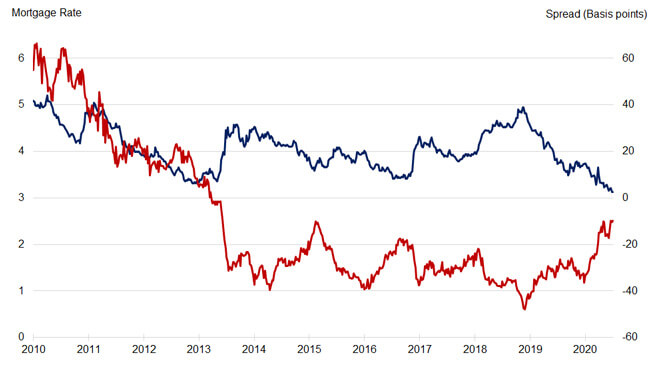Exploring the Benefits and Qualities of Jumbo Loans for Your Next Home Purchase Decision
As the realty market advances, recognizing the ins and outs of jumbo fundings ends up being increasingly significant for possible property buyers thinking about high-value buildings. These finances not just assist in considerable funding but additionally supply a number of advantages, such as affordable rates of interest and the potential removal of exclusive home loan insurance coverage. However, the course to securing a jumbo finance is loaded with details qualification criteria that might challenge some purchasers. To totally appreciate exactly how big lendings can affect your home purchase technique, it is crucial to explore their crucial features and benefits in higher information.
What Is a Jumbo Loan?

Jumbo loans are often made use of by purchasers seeking to acquire high-value homes or homes in expensive markets. jumbo loan. Offered the larger amounts obtained, loan providers usually impose stricter credit rating requirements, consisting of higher credit history, reduced debt-to-income ratios, and bigger down payments. The rates of interest on big loans might be slightly more than those on conforming financings, showing the increased danger for lenders
Furthermore, the approval process for a big car loan can be more lengthy and intricate, as loan providers call for comprehensive documents to evaluate the consumer's financial security. Recognizing these nuances is crucial for prospective house owners considering a jumbo loan for their property financing demands.
Key Benefits of Jumbo Finances
One significant benefit of jumbo financings is their ability to fund higher-priced homes that go beyond adhering finance limits. This feature makes them an eye-catching alternative for buyers wanting to buy deluxe homes or residential or commercial properties in high-cost areas where costs normally go beyond standard loan thresholds.
Additionally, jumbo car loans commonly include versatile terms and affordable rates of interest, enabling consumers to tailor their financing to match their unique monetary scenarios. jumbo loan. This adaptability can consist of alternatives for adjustable-rate home mortgages (ARMs) or fixed-rate loans, providing customers with the capacity to manage their regular monthly payments according to their choices
An additional advantage is that jumbo loans do not call for personal home loan insurance (PMI), which can substantially decrease the overall price of the finance. With PMI commonly being a considerable expense for standard finances with low deposits, preventing it can bring about significant savings with time.
Moreover, borrowers of big fundings generally have accessibility to higher loan quantities, enabling them to spend in residential properties that meet their way of life needs. This gain access to equips buyers to act decisively in competitive realty markets, protecting their wanted homes better. On the whole, jumbo lendings supply important advantages for those seeking to fund premium residential properties.
Qualification Needs for Jumbo Loans
Jumbo car loans include details eligibility demands that possible customers need to satisfy to safeguard funding for high-value buildings. Unlike conventional car loans, which have actually set restrictions based upon the adhering loan limitations developed by government-sponsored entities, big finances exceed these limits, demanding stricter standards.

In addition, big loans frequently demand a substantial down settlement, often varying from 10% to 20% of the purchase cost, relying on the lender's plans and the borrower's monetary situation. Cash money books are also thought about, with numerous lending institutions expecting debtors to have numerous months' well worth of mortgage repayments easily offered. Last but not least, comprehensive paperwork of revenue and properties will certainly be needed to sustain the financing application. Fulfilling these eligibility demands can place borrowers positively in safeguarding a jumbo financing for their wanted residential property.
Contrasting Jumbo Financings to Conventional Lendings
Comprehending the distinctions in between jumbo fundings and conventional finances is essential for property buyers navigating the premium realty market. Big financings surpass the adhering loan restrictions established by the Federal Housing Financing Company (FHFA), which suggests they are not qualified for purchase by Fannie Mae or Freddie read this article Mac. This results in various underwriting standards and demands for customers.
On the other hand, standard loans normally comply with these limitations, allowing for a more structured authorization procedure. Jumbo finances usually call for more stringent credit rating, bigger down settlements, and higher financial reserves. For example, while a standard finance may require a deposit of as low as 3% to 5%, jumbo loans generally require a minimum of 10% to 20%.
Rate of interest on jumbo finances may vary from those of conventional loans, often being a little greater because of the enhanced danger lending institutions think - jumbo loan. The possibility for significant financing can be beneficial for customers seeking deluxe residential or commercial properties. Eventually, comprehending these distinctions enables buyers to make informed choices, aligning their funding choices with their one-of-a-kind purchasing demands and financial situations
Tips for Safeguarding a Jumbo Loan
Safeguarding a jumbo funding requires mindful preparation and preparation, as loan providers frequently impose stricter demands compared to traditional financings. To boost your opportunities of authorization, start by examining your debt score and addressing any concerns. A rating of 700 or greater is usually favored, as it shows creditworthiness.
Next, gather your financial documents, consisting of income tax return, W-2s, and bank declarations. Lenders usually require thorough evidence of earnings and assets to examine your capacity to settle the car loan. Preserving a low debt-to-income (DTI) ratio is also crucial; go for a DTI listed below 43% to improve your application's competitiveness.
Additionally, think about making a bigger deposit. Lots of lending institutions seek at the very least 20% down for jumbo loans, which not only minimizes your financing amount however additionally signals financial stability. Involving with an experienced home mortgage broker can give important insights right into the process and help you navigate numerous lender choices.

Conclusion
In summary, big car loans present significant benefits for buyers looking for properties that go learn this here now beyond standard funding restrictions. Thorough understanding of both the benefits and demands connected with jumbo lendings is vital for making educated home purchase decisions in an affordable real estate market.
The interest rates on big lendings may be slightly higher than those on conforming financings, showing the enhanced threat for loan providers.
While a traditional funding might call for a down repayment of as little as 3% to 5%, jumbo lendings typically require a minimum of 10% to 20%.
Interest rates on big finances may differ from those of traditional car loans, frequently being a little higher due to the enhanced risk lending institutions presume.Protecting a jumbo car loan requires cautious Going Here preparation and prep work, as loan providers frequently enforce more stringent needs compared to conventional financings. Many lenders seek at least 20% down for jumbo fundings, which not just decreases your funding quantity but additionally signals economic security.